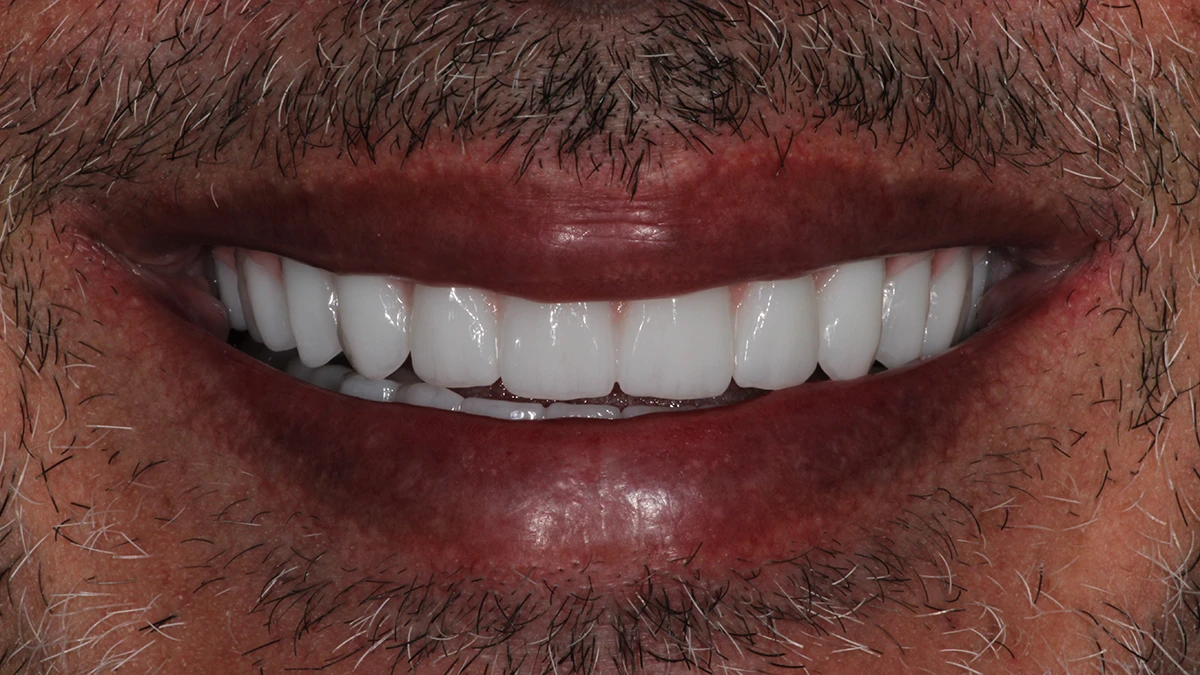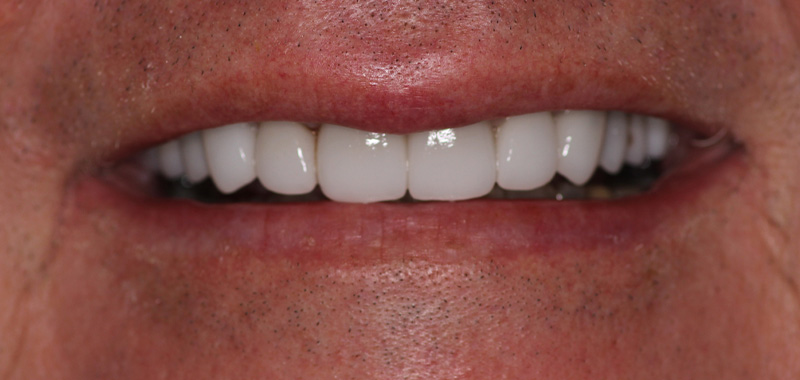Veneers are traditionally made of porcelain materials but are also available in composite resin.
Share a bit about your smile goals, and we'll guide you through your options. Whether you are curious about veneers, whitening, or a full smile makeover, we are here to answer your questions and recommend the best next steps. Consultations are available in person or virtually to fit your schedule.
Your dentist in Nassau Bay, TX will examine your teeth and take x-rays to determine you’re in good oral health. Tooth decay and gum disease must be treated before a patient can get veneers. You may not be a good candidate if you have severely misaligned or damaged teeth.
We will administer local anesthesia and remove .5 mm of enamel from your tooth (the same thickness as the veneer). This helps the veneer bond to your tooth and creates a seamless appearance that blends in with the rest of your smile.
After prepping the teeth, we’ll take physical or digital impressions of your teeth which are then sent to a dental lab that will create your veneers. It takes a few weeks for the creation of these veneers so we will place temporary veneers during this appointment. A shade guide will be used to match the color of your teeth to the veneers.
Once we have received your official veneers, it’s time to bond to your teeth. We prepare the natural teeth by cleaning & slightly abrading them to create a rougher surface. We then bond the veneer to your tooth with dental cement and cure it with UV light.
Veneers are durable and long-lasting porcelain shells that instantly improve the appearance of your teeth and overall smile. This causes patients to look and feel more radiant. Increased confidence can carry over to other aspects of their lives including socializing, dating, and career opportunities.
Veneers can cover up minor problems such as misaligned teeth and gaps without patients needing to undergo expensive orthodontic treatment. Similarly, the bonding of the veneers with the natural teeth strengthens them and protects them from damage.
Veneers are also a cost-effective option to protect a worn down, cracked, or chipped tooth without needing a dental crown. Patents can have their veneers matched to the natural shade of their teeth or go lighter for a whitening boost.
Because veneers require the permanent alteration of your natural tooth enamel, the procedure is not reversible. However, you will need to replace your veneers every 10-15 years for porcelain and 4-7 years for composite resin veneers. You will always need to cover your shaven down enamel once you undergo enameloplasty in preparation for veneers.
Dental sedation has been around for centuries.
Sedation dentistry has so many uses outside of causing patients to feel relaxed. Sedation also reduces gag reflex sensitivity which makes treatments on the rear molars easier to perform. Those with low pain tolerance can also benefit from sedation, as it reduces pain sensitivity.
Patients with severe dental anxiety are likely to avoid dental appointments and neglect necessary treatments. Sedation makes it easier for patients and the dentist to prevent serious oral health problems by reducing stress and memory associated with dental procedures.
Sedation is useful for children because they are likely to be apprehensive or scared of going to the dentist. Young children are less cooperative and in more complex or long procedures, this can be an issue. Some kids have difficulty holding their mouth open or sitting still for long procedures and sedation helps improve all of these conditions.
That you should NEVER use teeth to cut or open things.

























